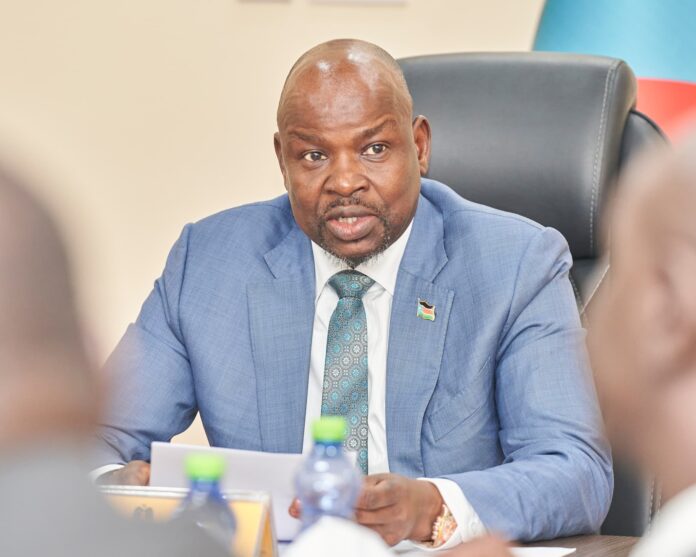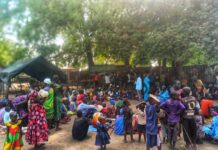South Sudan Vice President Benjamin Bol Mel is at the center of a scathing new United Nations report accusing South Sudan’s top leadership of looting more than $25 billion in oil revenues — a scheme that has deepened the country’s human rights crisis and crippled its institutions.
The report, released today by the UN Commission on Human Rights in South Sudan, details how Bol Mel and other senior figures in President Salva Kiir’s inner circle allegedly orchestrated massive embezzlement of state funds through a network of corrupt contracts, political patronage, and opaque financial arrangements.
Titled “Plundering a Nation: How Rampant Corruption Unleashed a Human Rights Crisis in South Sudan,” the two-year investigation paints a picture of a political elite enriching itself while most citizens endure hunger, poor health care, and systemic neglect.
“Corruption is not incidental — it is the engine of South Sudan’s decline,” said Yasmin Sooka, Chair of the Commission. “Vice President Bol Mel and other key officials have turned state power into a vehicle for personal gain, with devastating consequences for the people.”
A centerpiece of the report is the controversial “Oil for Roads” program, a multi-billion-dollar infrastructure initiative touted by the government as a solution to South Sudan’s development woes. Instead, investigators found that the project became a funnel for corruption, with contracts awarded to companies closely linked to Vice President Bol Mel. Few roads were ever completed.
“This wasn’t just mismanagement it was deliberate,” said Commissioner Carlos Castresana Fernández. “Funds meant for public infrastructure vanished into the hands of political allies and cronies. Meanwhile, communities remain cut off, without access to hospitals, markets, or schools.”
Another scheme highlighted in the report involves a private firm given control over non-oil revenues. The company, allegedly tied to top officials, is accused of siphoning public funds and illegally taxing humanitarian organizations, obstructing aid delivery in one of the world’s worst hunger crises.
The Commission’s findings underscore how key government institutions particularly those meant to deliver education, health, and welfare have been starved of resources. In stark contrast, offices linked to the presidency and Vice President Bol Mel’s network reportedly consumed an outsized portion of the national budget.
“These are not accounting errors this is calculated theft,” said Fernández. “And the victims are children, the sick, the hungry people being robbed of life-saving services.”
The report also raises alarm over growing nepotism, including the recent appointment of Bol Mel’s wife to a senior government post. Such moves, the Commission warns, further entrench elite control over public institutions, reducing transparency and weakening democratic oversight.
As South Sudan’s fragile peace deal unravels — worsened by the March arrest of First Vice President Riek Machar and the crackdown on opposition figures — the Commission warns that unchecked corruption is fueling instability.
“Unless this cycle of looting and repression is broken, there is no pathway to a stable transition,” said Commissioner Barney Afako. “This is not just about bad governance — it is about an assault on the fundamental rights of millions.”
The Commission accuses the government of violating both national laws and international treaties, including the UN Covenant on Economic, Social and Cultural Rights.
The report concludes with 54 urgent recommendations, including the prosecution of individuals involved in economic crimes, sweeping reforms to public financial management, and renewed support for civil society-led accountability efforts.
“What we are seeing is a nation being plundered from the inside out,” Sooka warned at the report’s launch. “Without accountability and systemic reform, South Sudan’s future will remain hostage to the ambitions of the few — while the many continue to suffer.”
The Government of South Sudan, including the office of Vice President Bol Mel, has not yet issued a formal response to the allegations.





